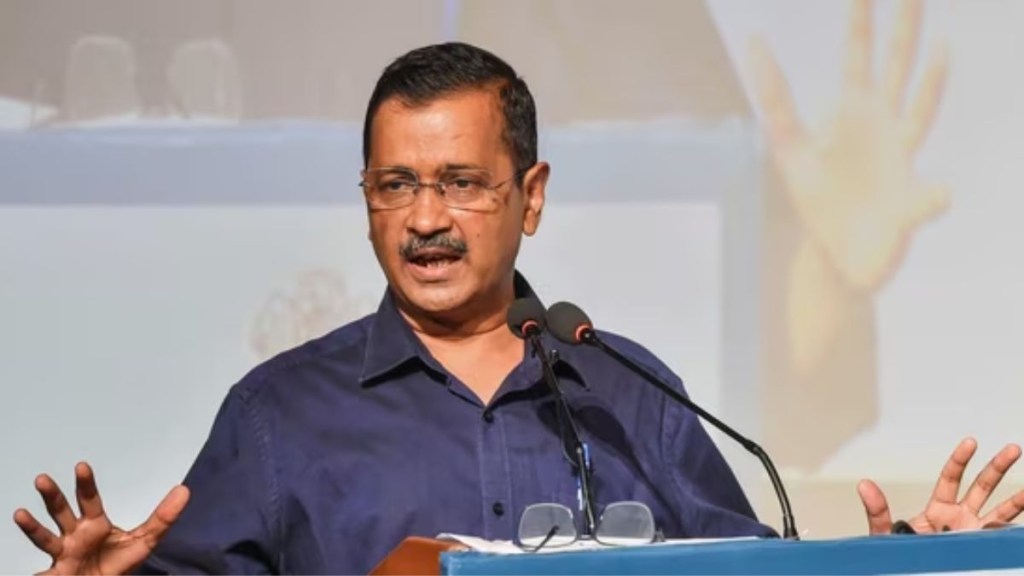As the Bharatiya Janata Party (BJP) amplifies concerns over a purported “constitutional crisis” in Delhi with Chief Minister Arvind Kejriwal remaining in Enforcement Directorate (ED) custody a week after his arrest, discussions surrounding the possibility of imposing President’s rule in the national capital have gained momentum.
According to a report by The Indian Express, sources familiar with the matter revealed that the discussions around that option have “gathered pace” at the highest levels, while AAP minister Atishi said that any move to impose President’s rule in Delhi would be an act of “political vendetta”.
The report also stated that the Centre and the office of Delhi Lt Governor VK Saxena are reportedly evaluating instances of “governance-related challenges” confronting the city.
A recent letter from Saxena to Kejriwal highlighted issues concerning governance, particularly the delay in the transfer of a medical college principal in a case of alleged sexual harassment. Notably, Saxena also noted that Health Minister Saurabh Bharadwaj had written to him directly, bypassing the Chief Minister’s office.
The report also quoted the sources as saying that Saxena’s letter, illustrating how governance matters are being affected, stated that any note “on a significant issue be submitted to me, through the Honourable Chief Minister”.
Internal strife within AAP
Furthermore, North East Delhi BJP MP Manoj Tiwari said Kejriwal’s arrest and the purported internal strife within the Aam Aadmi Party (AAP) was symptomatic of a constitutional crisis.
“A Constitutional crisis has arisen in Delhi… Aam Aadmi Party is currently going through an internal war because Arvind Kejriwal is trying to make his wife the Chief Minister, and the legislators are not ready to accept her. Therefore, there is a constitutional crisis in Delhi today, and due to Kejriwal’s drama, the people of Delhi are distressed,” Tiwari said.
On the other hand, Bharadwaj countered these claims, asserting that the Lt Governor appeared eager to assume control of Delhi, possibly through the imposition of President’s rule.
“Imposing President’s rule gives him (Lt Governor) that window. His aspiration is to probably run the state without contesting elections. The dismissal of a PIL demanding the removal of Kejriwal as Chief Minister in the Delhi High Court today, however, is a setback for them,” Bharadwaj told The Indian Express.
Implementation of President’s rule in Delhi
Delhi’s distinctive constitutional framework permits the imposition of President’s rule under Article 239AB. Legal experts aligned with the central government argue that this provision offers a significantly lower threshold for implementing President’s rule in Delhi compared to states.
Sources indicate ongoing discussions regarding the conditions for invoking Article 239AB through the President, which mandates a prior report from the Lt Governor to the Centre.
It may be noted that the only time President’s rule under Article 239AB was invoked in Delhi was in 2014, following Kejriwal’s resignation within 49 days of assuming office, owing to his government’s minority status.
Reports suggest that the central government is now treating the 2014 episode as a unique case, given the hung Assembly and absence of prospects for fresh government formation. With a majority government currently in power, deliberations primarily revolve around sub-clause (b) of Article 239AB.
This clause empowers the President to suspend the operation of Article 239AA, which confers special status on Delhi and outlines its governance, if deemed necessary for the proper administration of the capital.
Delhi’s Education Minister Atishi said, “The President may exercise the power under Article 239AB only if she is satisfied that a situation had arisen in which the administration of Delhi NCT ‘cannot’ be carried on in accordance with Article 239AA or the GNCTD Act, or if it is ‘necessary or expedient’ to exercise the power ‘for the proper administration of the National Capital Territory’… Neither condition is met in this case.”

